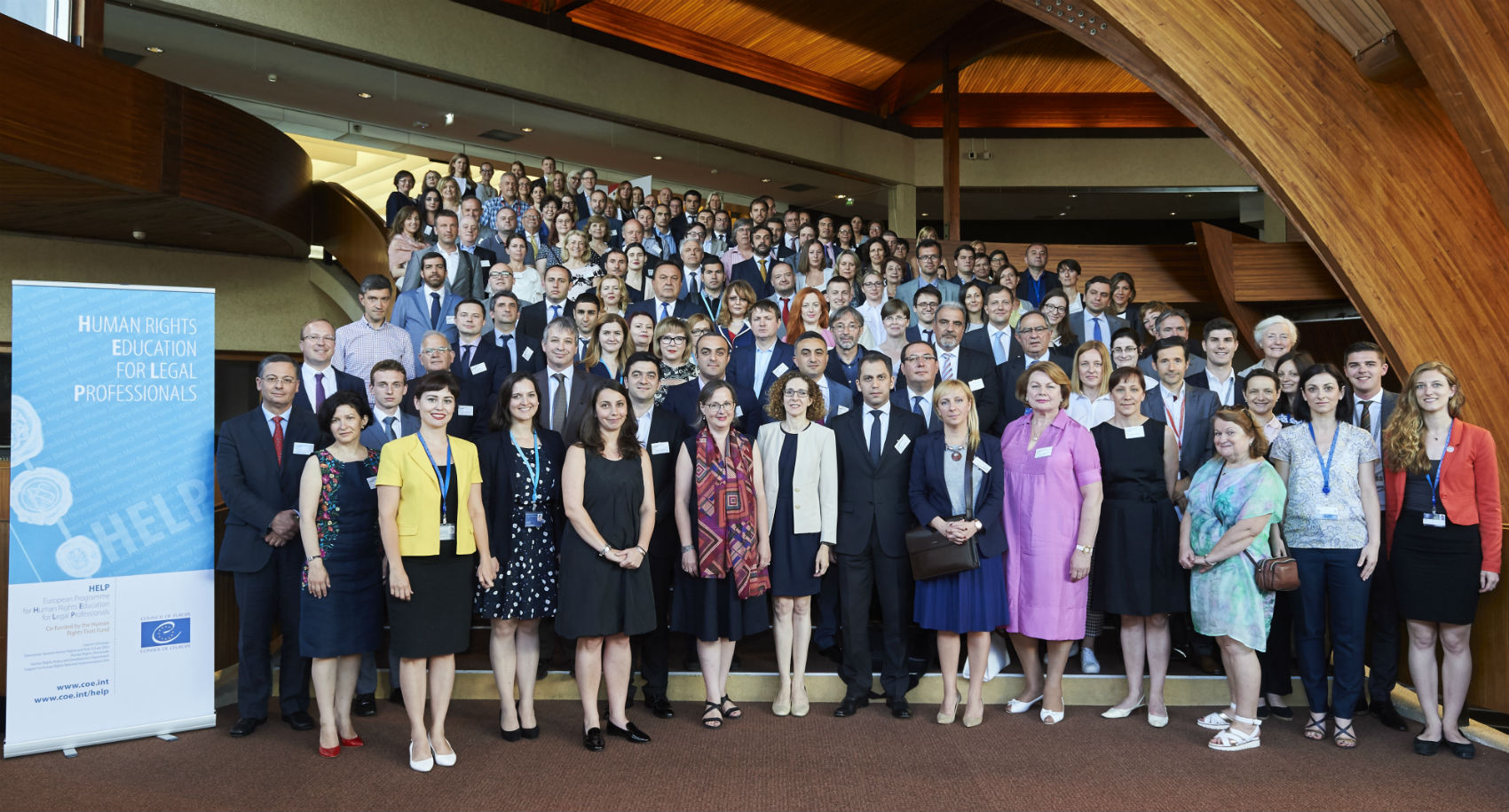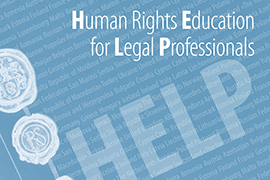|
The annual HELP Network Conference took place on 19-20 June and was entitled “HELP for Friendly justice”, gathering over 130 participants representing training institutions for judges and prosecutors and Bar associations. The Conference of the Council of Europe Programme on Human Rights Education for Legal Professionals (HELP) was opened by Ambassador Emil Ruffer, permanent representative of the Czech Republic to the Council of Europe and current Chair of the Committee of Ministers. Ambassador Ruffer emphasized HELP’s contribution in ensuring rule of law, one of the priorities of the Czech Chairmanship of the Committee of Ministers, by providing training for legal professionals. Christos Giakoumopoulos, Director of Human Rights of the Council of Europe, underlined the strong links between the general priorities of the Council of Europe and the HELP Programme, in areas such as the fight against racism, xenophobia and homophobia in Europe, migration and refugees, social rights and prevention of radicalisation. The participants in the Conference could then hear an overview of the recent jurisprudence of the European Court of Human Rights concerning the independence of the judiciary from Yonko Grozev, Judge of the Court. This was followed by a comprehensive presentation on social rights towards a human rights friendly justice in Europe by Petros Alikakos, judge in Greece and member of the HELP Consultative Board. The HELP Secretariat provided an update on HELP activities and achievements, including its renewed HELP e-learning platform and its raising membership (over 18.000 users, with 2016 seeing four times more new members than 2014). The HELP courses on fight against racism, xenophobia and homophobia and transphobia; Labour Rights; Child-friendly Justice and Children’s Rights; and violence against women were presented. Tatiana Termacic, Head of the Human Rights National Implementation Division stressed the importance that HELP places in making justice accessible to all and of making friendly training materials for legal professionals. She thanked the main HELP funders: the European Union and the Human Rights Trust Fund (HRTF). In two working groups, participants from national training institutions and Bar associations, respectively, discussed cross border cooperation in human rights training. Keynote speakers, HELP Focal and Info Points, in each group provided presentations to the discussion. Mikhail Lobov, the Head of Human Rights Policy and Cooperation Department, highlighted the value of close collaboration of HELP with relevant Council of Europe’s entities resulting in high quality education materials. Beyond the European Court of Human Rights, the department of the European Social Charter and the European Commission against Racism and Intolerance (ECRI), the most relevant entities with which HELP closely works focus on sexual orientation and gender identity (SOGI), data protection, bioethics, medicrime, human trafficking, cooperation in criminal matters, media and internet, violence against women or children’s rights, among others. HELP partners and allies such as the European Union, the Fundamental Rights Agency (FRA), the European Judicial Training Network (EJTN), the Council of Bar and Law Societies of Europe (CCBE), the UNHCR and other international organisations sent their representatives to the Conference. On 20 June, the second day of the 2017 HELP Network Conference, the participants attended a joint session with the Conference “Learning to Live Together: a Shared Commitment to Democracy”. The plenary joint session was opened by Gabriella Battaini-Dragoni, Deputy Secretary General of the Council of Europe. In her words, ‘HELP is the Council of Europe’s commitment’ to providing knowledge to Europe’s legal professionals to effectively implement the European Human Rights standards. “Lawyers, prosecutors and judges also need training if they are to stay abreast of developments in the evolution of human rights, not least in a context where the human rights challenges facing our member states are fast evolving”, she said. She highlighted the exponential growth of the HELP Programme across Europe: HELP in the Western Balkans and Turkey, HELP in Russia and the first phase in the largest ever training programme on human rights for legal professionals in the European Union. She also referred to HELP’s incoming work –with EU funding and in collaboration with relevant Council of Europe entities- in training on the prevention of radicalisation leading to violence and terrorism – one of the Council of Europe Secretary General’s priorities. The participants later took part in two Workshops, on Human rights in higher education and Human rights in lifelong learning respectively. HELP leaflet - Other languages: FRE - RUS Speeches & Presentations
|
News Türkiye

STRASBOURG, France
20/06/2017
- Diminuer la taille du texte
- Augmenter la taille du texte
- Imprimer la page
2014'ten haberler mi arıyorsunuz?




